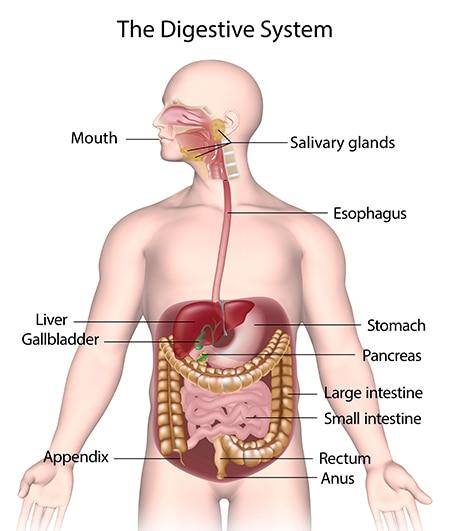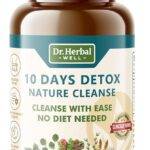In a world where the fast pace of life often overshadows our innate need for proper nourishment, the importance of good digestion can sometimes take a backseat. Yet, our bodies are remarkable machines, intricately designed to process the foods we consume, extract vital nutrients, and eliminate waste. however, when digestion falters, it can lead to a host of discomforts and health issues that ripple through our daily lives. This is where the power of food comes into play. In this article, we will explore a curated selection of the best foods to enhance digestive health. By incorporating these nutrient-rich options into your diet, you can foster a harmonious balance within your gut, paving the way for not just better digestion, but overall well-being. Join us as we journey through the colorful aisle of nature’s pantry, discovering the tasty treasures that can help your body thrive.
Table of Contents
- Understanding Digestion: the Role of Food in Gut Health
- Key Nutrients for Digestive Wellness
- Fiber-Rich Foods: the Essential Building Block
- Probiotics and Prebiotics: Friends of the Gut
- Fermented Foods: A Tasty Approach to a Happy Tummy
- Herbs and Spices: Natural Aids for Improved Digestion
- Hydration Matters: Drink Your Way to Better Digestion
- Foods to Avoid: Common Culprits of Digestive Discomfort
- Meal Timing and Size: Strategies for Optimal Digestion
- Recipes for Digestive Health: Culinary Solutions to Promote Wellbeing
- Q&A
- To Conclude
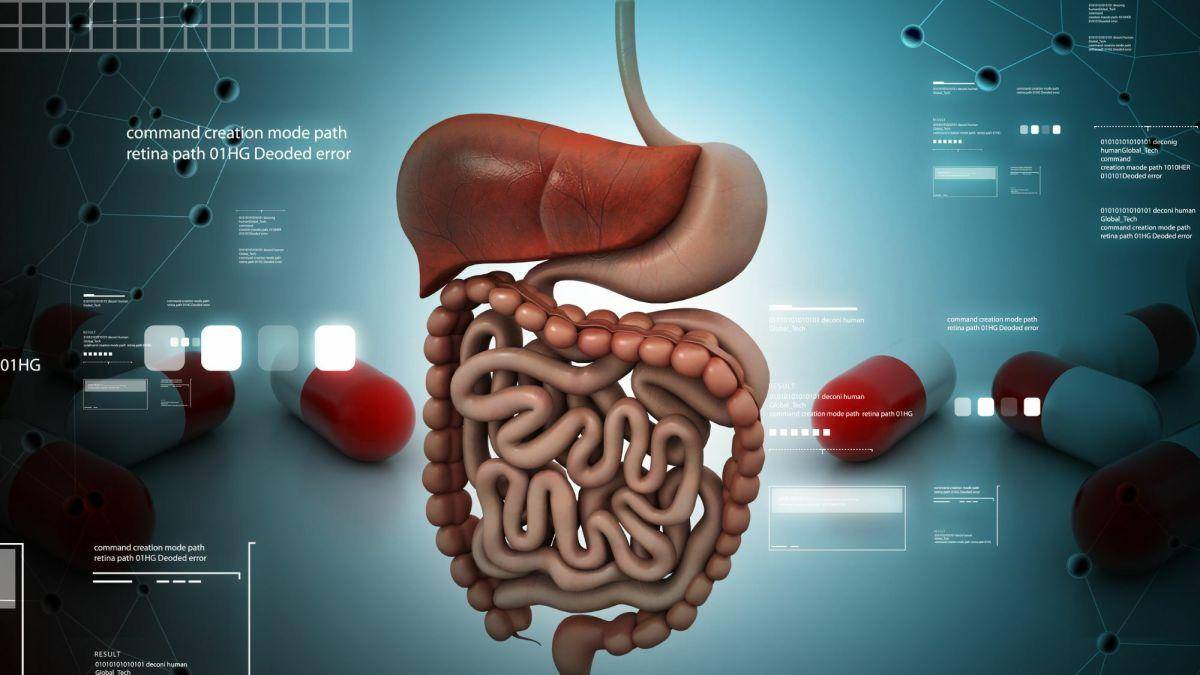
Understanding Digestion: The Role of Food in Gut Health
Digestion starts the moment food enters the mouth, where mechanical and chemical processes begin to break it down. Throughout its journey, food encounters various enzymes and acids that play pivotal roles in transforming it into nutrients. A balanced diet rich in specific foods can enhance this intricate system, promoting optimal gut health. understanding the impact of these foods helps us make informed choices that support our digestive system.
Fiber-rich foods are one of the cornerstones of healthy digestion. They add bulk to the stool, making it easier to pass and helping to prevent constipation. Incorporating a variety of fiber sources can ensure a thorough approach to gut health.Consider adding:
- Whole grains: Oats, brown rice, and quinoa.
- Fruits: Apples, pears, and berries.
- Vegetables: Broccoli, carrots, and spinach.
- Legumes: Lentils, beans, and peas.
Probiotics are live microorganisms that confer health benefits when consumed in adequate amounts. They are essential for maintaining the body’s natural balance of gut bacteria. Foods that are rich in probiotics can significantly enhance your digestive health. Include fermented items such as:
- Yogurt: A great source of active cultures.
- Kefir: A fermented dairy product that is rich in probiotics.
- Sauerkraut: Fermented cabbage that acts as a powerful probiotic.
- Kombucha: A fermented tea beverage full of beneficial bacteria.
another vital aspect of digestion is hydration.Water plays a crucial role in breaking down food and helps in the absorption of nutrients. It is indeed recommended to drink plenty of fluids throughout the day to facilitate this process. Here’s a simple guide to how much water you might need:
| Activity Level | Water intake Proposal |
|---|---|
| Inactive | 2 liters (8 cups) |
| Moderately active | 2.5 liters (10 cups) |
| Very active | 3 liters (12 cups) |
Lastly, don’t overlook the benefits of healthy fats that can ease the digestive process.Omega-3 fatty acids found in foods like fish and walnuts can reduce inflammation in the gut lining. Incorporating such healthy fats can further complement your digestive health strategy. Aim to add sources like:
- Fatty fish: Salmon, mackerel, and sardines.
- Avocados: Rich in monounsaturated fats.
- Nuts and seeds: Chia seeds, flaxseeds, and walnuts.

Key Nutrients for Digestive Wellness
Maintaining a healthy digestive system relies heavily on the consumption of specific nutrients that promote optimal gastrointestinal function. One of the most critical components for digestion is fiber. Found abundantly in fruits, vegetables, whole grains, and legumes, fiber aids in adding bulk to the stool, making it easier to pass and reducing the risk of constipation. Incorporating a variety of fiber-rich foods in your meals not only enhances bowel regularity but also supports a balanced gut microbiome.
Next in line are probiotics, which are live microorganisms that confer health benefits when consumed in adequate amounts. They can be found in fermented foods like yogurt, kefir, sauerkraut, and kimchi. These beneficial bacteria help maintain the natural balance of flora in the intestines, aiding digestion and absorption of nutrients. Moreover, they can improve gut health by preventing the growth of harmful bacteria and enhancing immune function.
Another essential nutrient is prebiotics.These are non-digestible food components, primarily found in fruits, vegetables, and whole grains, that nourish probiotics. Foods like onions, garlic, asparagus, and bananas are rich in prebiotics, promoting the growth of beneficial gut bacteria. The synergy between probiotics and prebiotics creates an effective duo that supports digestive health by fostering a diverse and robust gut flora.
Don’t overlook the importance of hydration in digestive wellness. Water plays a crucial role in breaking down food so nutrients can be absorbed efficiently. It also helps in dissolve nutrients and soluble fiber, facilitating smoother digestion. Consuming adequate fluids can aid in preventing constipation and ensuring that the digestive system functions properly. Keep in mind, herbal teas and broths can also contribute to your daily hydration needs.
Lastly, essential fatty acids, particularly omega-3 and omega-6, are beneficial for digestive health.These fats can be found in foods such as fatty fish, flaxseeds, and walnuts. They help reduce inflammation in the gut, which can improve symptoms of various digestive disorders, including irritable bowel syndrome (IBS) and inflammatory bowel disease (IBD). Including a healthy source of fatty acids in your diet can promote an overall balanced digestive system.
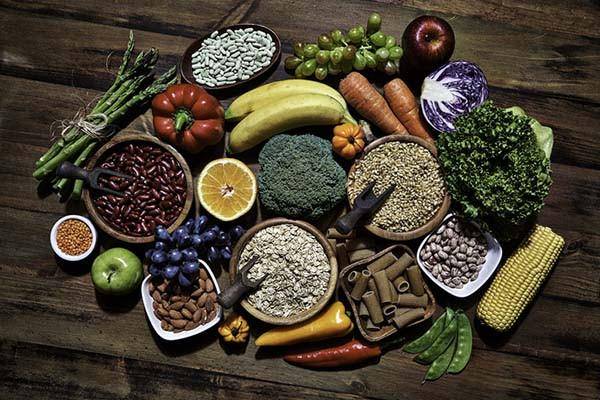
Fiber-Rich Foods: The Essential Building Block
When it comes to bolstering digestive health, incorporating fiber-rich foods into your diet is paramount. Fiber acts like a sponge in the digestive tract, absorbing excess water, promoting regular bowel movements, and preventing constipation. Whether from plant-based sources or whole grains,the right amount of fiber can transform how your body processes food.
Foods high in dietary fiber can be divided into two categories: soluble and insoluble fiber. Soluble fiber dissolves in water and forms a gel-like substance,aiding in slow digestion and helping regulate blood sugar levels. This type can be found in:
- Oats
- Barley
- Beans and legumes
- Fruits such as apples and citrus
On the other hand, insoluble fiber does not dissolve in water, adding bulk to bowel movements and speeding up digestion. This fiber is essential for preventing constipation and can be sourced from:
- Whole grains
- Nuts and seeds
- Vegetables such as carrots and broccoli
- dark leafy greens
A balanced approach to fiber intake can significantly benefit gut health. Aiming for a mix of both types of fiber ensures that your digestive system is functioning optimally. For adults, a daily intake of 25 to 30 grams of fiber is recommended. To help keep track, here’s a simple overview of some fiber-rich options:
| food Item | Type of Fiber | Fiber Content (per serving) |
|---|---|---|
| Chia Seeds | Soluble | 10g |
| Brown Rice | Insoluble | 3.5g |
| Broccoli | Insoluble | 2.4g |
| Avocado | Soluble | 10g |
To seamlessly incorporate more fiber into your meals, opt for whole grain versions of bread and pasta, snack on fruits and nuts, and try adding legumes to your salads and soups. Not only will these choices enhance your digestion, but they will also contribute to overall health and well-being by supporting the growth of beneficial gut bacteria. So, make fiber a paramount priority in your diet, and watch as your digestive system thanks you!

Probiotics and Prebiotics: Friends of the Gut
The gut is often referred to as our “second brain,” and for good reason. It houses trillions of microorganisms that play a crucial role in our overall health. Among these, probiotics and prebiotics are two key players that work together to foster a balanced digestive system. Probiotics are live beneficial bacteria, while prebiotics are the fibers that feed these good bacteria, helping them thrive. A healthy balance of both can lead to improved digestion and enhanced nutrient absorption.
Incorporating probiotic-rich foods into your diet is a delightful way to support gut health. These foods introduce live microorganisms that can replenish your gut flora. consider adding the following options to your meals:
- Yogurt: Look for varieties that contain live and active cultures.
- Kefir: This fermented dairy drink is packed with probiotics.
- Kimchi: A spicy Korean dish made from fermented vegetables.
- Sauerkraut: Fermented cabbage that can easily elevate your meals.
- Miso: A fermented soybean paste, excellent in soups and marinades.
On the other hand, prebiotic foods serve as nourishment for the probiotics, making them essential for maintaining a healthy gut habitat. including prebiotics in your diet can significantly enhance the effectiveness of probiotics.Here are some top choices:
- Garlic: A flavor enhancer that’s also a great prebiotic.
- Onions: Not only do they enhance dishes, but they also nurture gut bacteria.
- Bananas: An easy snack that delivers both energy and prebiotic benefits.
- Asparagus: A versatile veggie that boosts your prebiotic intake.
- Oats: Rich in beta-glucans, they support the growth of beneficial bacteria.
To help you see the synergy between probiotics and prebiotics, here’s a simple table outlining examples of food pairings that maximize their benefits:
| Probiotic Foods | Best Prebiotic Partners |
|---|---|
| Yogurt | Bananas |
| Sauerkraut | Garlic |
| Kefir | Onions |
| Kimchi | Asparagus |
| Miso | Oats |
Embracing a diet rich in both probiotics and prebiotics not only supports digestive health but also contributes to greater overall wellness. With their combined efforts, your gut can maintain harmony, improve digestion, and even boost your immune system. By enjoying a diverse array of these food options, you lay the foundation for a thriving, resilient gut environment that benefits your body in numerous ways.
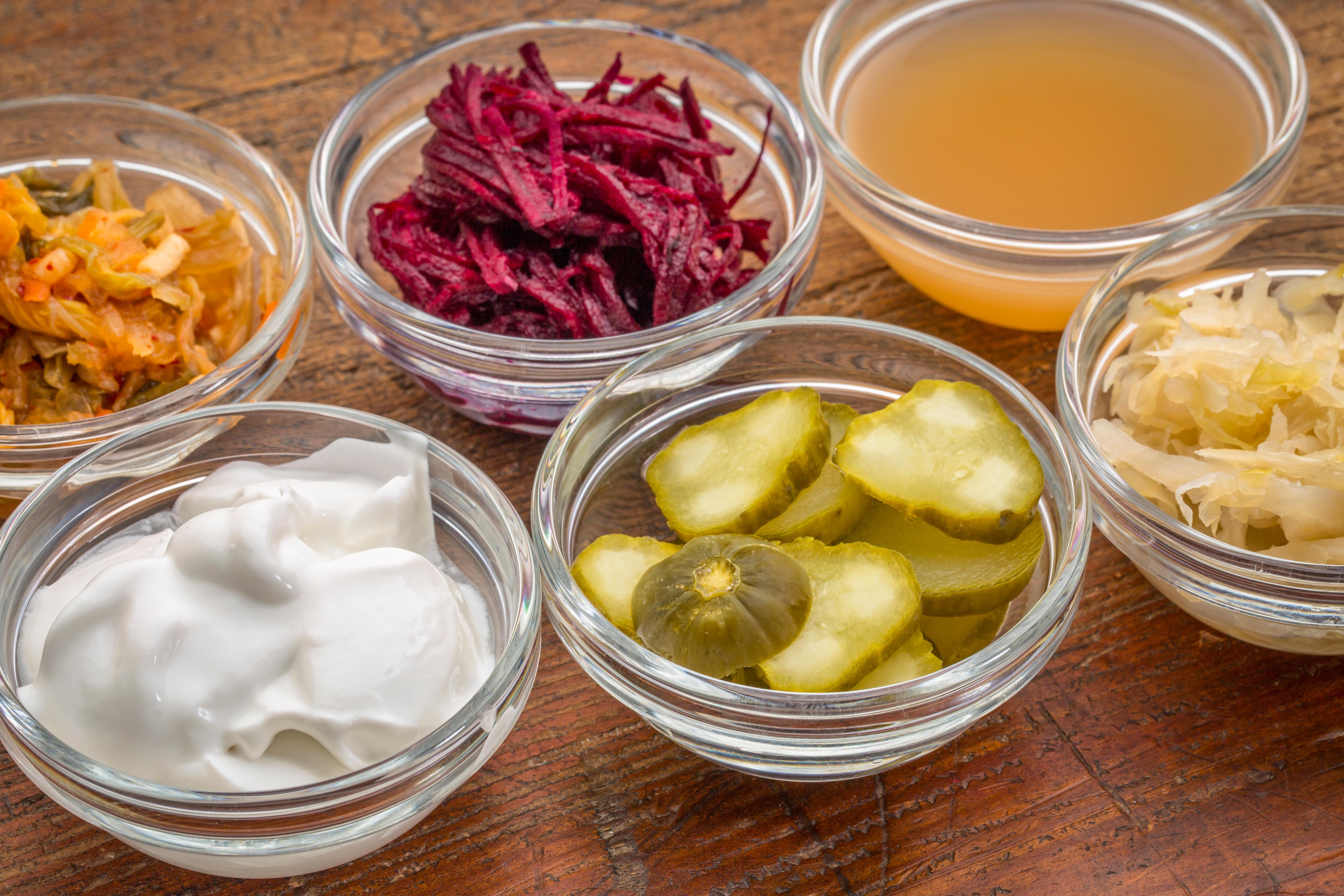
Fermented foods: A Tasty Approach to a Happy Tummy
When it comes to enhancing digestion, fermented foods rise to the forefront as a delicious avenue towards a happier gut. These culinary delights not only tantalize the taste buds but also serve as a powerhouse of probiotics, which play a meaningful role in maintaining gut health. By incorporating a variety of these foods into your diet, you can harness their benefits and support your digestive system in a unique, flavorful way.
Among the most popular fermented foods, you’ll find:
- Yogurt: Rich in live cultures, yogurt is a staple that can smooth the digestive process and enhance gut flora.
- Kefir: This tangy drink is packed with probiotics and has a slightly effervescent quality, making it a refreshing option.
- Kraut and Kimchi: Both are made from fermented cabbage,delivering crunch and spice along with beneficial bacteria.
- Miso: A customary Japanese seasoning, miso can be used in soups and dressings to add depth and gut health-boosting properties.
- Tempeh: A fermented soybean product that provides not only probiotics but also a hearty serving of plant-based protein.
The fermentation process transforms the food, breaking down complex carbohydrates and sugars that would or else be difficult to digest. This change makes nutrient absorption more efficient,allowing more beneficial compounds to reach your system. Not only do fermented foods improve digestion, but they also can lead to enhanced immunity and overall well-being. The balance they deliver is truly remarkable.
Beyond just aiding digestion, these foods can also promote the production of specific vitamins, such as B vitamins and vitamin K, essential for various bodily functions. By choosing to include a diverse range of fermented foods in your meals, you create a palette rich in flavors and nutrients, supporting both gut health and a tantalizing culinary experience. For those new to fermented foods, starting with small portions can aid in adjusting your digestive system gradually.
here’s a simple comparison table showcasing some popular fermented foods and their primary benefits:
| Food Item | Primary Benefits |
|---|---|
| Yogurt | Improves gut flora, boosts digestion |
| Kefir | Supports immune function, enhances nutrient absorption |
| Kimchi | Aids in digestion, rich in fiber |
| Miso | Contains antioxidants, supports gut health |
| Tempeh | Rich in protein, promotes gut microbiome balance |
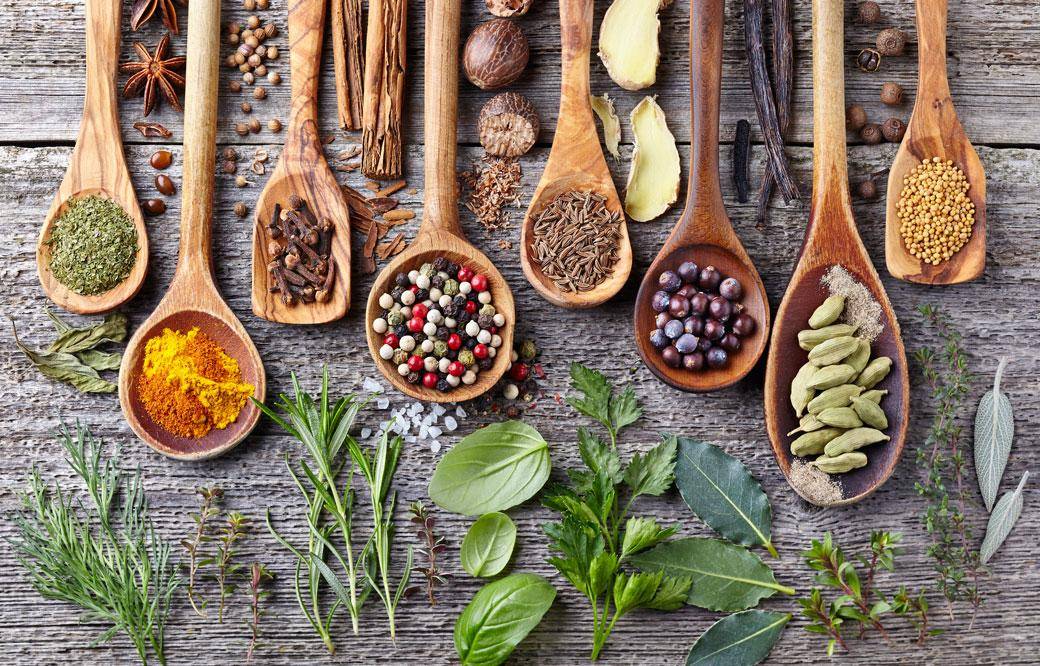
Herbs and Spices: Natural Aids for Improved Digestion
Incorporating herbs and spices into your meals is a delicious and effective way to support your digestive system. Many of these natural ingredients have been praised for their health benefits, particularly in promoting digestion.For example,ginger is renowned for its ability to soothe the stomach and alleviate nausea,making it a fantastic addition to teas and soups. Not only does it add a zingy flavor, but it also stimulates saliva and gastric juices, enhancing food breakdown.
Another powerhouse is peppermint.this fragrant herb not only freshens your breath but also plays a significant role in easing digestive discomfort. Its menthol content can relax the muscles of the gastrointestinal tract, helping to relieve bloating and gas. Sipping on peppermint tea after a meal can be a calming ritual that aids in digestion while providing a refreshing finish to your culinary experience.
Cumin seeds can also work wonders for your digestive health. These tiny seeds are packed with antioxidants and possess carminative properties,which help prevent gas and relieve indigestion. Integrating cumin into your spice rack and using it in dishes like curries and stews can bring a warm, earthy flavor while promoting a healthy digestive tract.
Don’t overlook fennel, which has a sweet, anise-like flavor. This herb is not only a culinary delight but also acts as a digestive aid, especially when it comes to relieving bloating and gas. Medicinally, fennel seeds can be chewed after meals to improve digestion. They can also be brewed into a soothing tea that reinforces your digestive system’s efficiency.
Last but not least, turmeric is widely regarded as a super-spice for its anti-inflammatory properties.Curcumin, the active compound in turmeric, helps regulate digestion and reduce symptoms of irritable bowel syndrome (IBS). Its warm, slightly bitter flavor enhances various dishes—from rice to smoothies—and its health benefits extend far beyond just digestion. Consider adding black pepper to your turmeric dishes to boost curcumin absorption, making every bite even more beneficial.

Hydration Matters: Drink Your Way to Better Digestion
Water plays a crucial role in the digestive process, facilitating the breakdown of food and the absorption of nutrients. When your body is adequately hydrated, it can efficiently produce the saliva needed for chewing and breaking down food in the mouth. Saliva contains essential enzymes that kickstart digestion, and without enough fluids, your body may struggle to produce this vital liquid. To optimize your digestive health, aim to drink plenty of water throughout the day.
Incorporating water-rich foods into your diet can also enhance hydration. Fruits and vegetables are fantastic options that not only hydrate but also provide additional fiber, beneficial for regular bowel movements. Consider adding the following juicy favorites to your meals:
- watermelon: Refreshing and sweet, it boasts around 92% water content.
- Cucumber: Crisp and low in calories, excellent for snacking.
- Strawberries: Bursting with flavor,they’re also rich in antioxidants.
- Celery: Known for its crunch,it contains about 95% water.
- Spinach: This leafy green is not only hydrating but also packed with nutrients.
Adequate hydration helps maintain the mucosal lining in the stomach, which protects it from acid and aids in preventing indigestion and heartburn. When dehydration occurs, this lining can become compromised, leading to discomfort. A simple solution is to sip on herbal teas, which are not only hydrating but also soothing for the digestive system. Some excellent choices include:
- Peppermint tea: Great for alleviating bloating and gas.
- Ginger tea: Known for its anti-nausea properties and can stimulate appetite.
- Chamomile tea: A calming herb that can help alleviate digestive stress.
Ultimately, you can create a structured hydration plan by aligning your water intake with your meals and snacks. This increases the efficiency of digestion. Consider using a simple table to track water intake throughout the day:
| Time | Recommended Water Intake |
|---|---|
| Morning (upon waking) | 1-2 glasses |
| Before meals | 1 glass |
| After meals | 1 glass |
| Mid-afternoon | 1 glass |
| Before bed | 1 glass |
By prioritizing hydration alongside your food choices, you can significantly enhance your digestive health. Whether it’s enjoying water-rich foods, sipping herbal teas, or reinforcing your daily water intake, these practices collectively contribute to a robust digestive system. This holistic approach will not only support digestion but also promote overall well-being.

Foods to Avoid: Common Culprits of Digestive Discomfort
When it comes to optimizing digestive health, awareness of what foods might hinder your gut’s performance is essential. Certain items, while seemingly harmless, can wreak havoc on your digestive system, leading to discomfort and bloating. As an example, dairy products like milk, cheese, and yogurt can be difficult for many to digest, particularly for those who are lactose intolerant. While dairy is rich in calcium and other nutrients, it can induce gas and cramps in susceptible individuals.
Another category to watch out for is processed foods. Often high in sugars, fats, and artificial additives, these items can disrupt the balance of beneficial bacteria in your intestines. Snack bars,chips,and sugary beverages not only lack essential nutrients but may also lead to inflammatory responses in your gut. Eating whole, unprocessed foods rather can create a more favorable environment for digestion.
Gluten-containing grains, like wheat and barley, can also present problems for some people. For individuals with celiac disease or non-celiac gluten sensitivity, foods such as bread, pasta, and certain cereals can cause significant digestive issues. Symptoms ranging from bloating to diarrhea can indicate that gluten is a problematic ingredient in your diet. Exploring gluten-free alternatives can be a beneficial step toward better digestive health.
Fried and fatty dishes should also be approached with caution. Foods high in unhealthy fats can slow down digestion and may lead to bloating and discomfort. Items like fried chicken, greasy burgers, and heavy sauces can be tough on your system. Instead, opting for grilled or steamed proteins can ease the burden on your digestive tract while still providing essential nutrients.
| Food to Avoid | Reason |
|---|---|
| Dairy Products | Lactose intolerance may cause gas and cramps. |
| Processed Foods | High in sugars and additives; disrupt gut bacteria. |
| Gluten-containing Grains | Can cause digestive distress for sensitive individuals. |
| fried and Fatty Foods | Slow digestion and lead to bloating. |
Lastly, consider the impact of artificial sweeteners found in sugar-free and low-calorie products. Substitutes like sorbitol, mannitol, and aspartame can contribute to bloating and gas. While they may seem like a healthy choice, these additives can confuse your digestive system and lead to discomfort. Sticking to natural sources of sweetness, such as honey or maple syrup, can enhance flavor without compromising gut health.
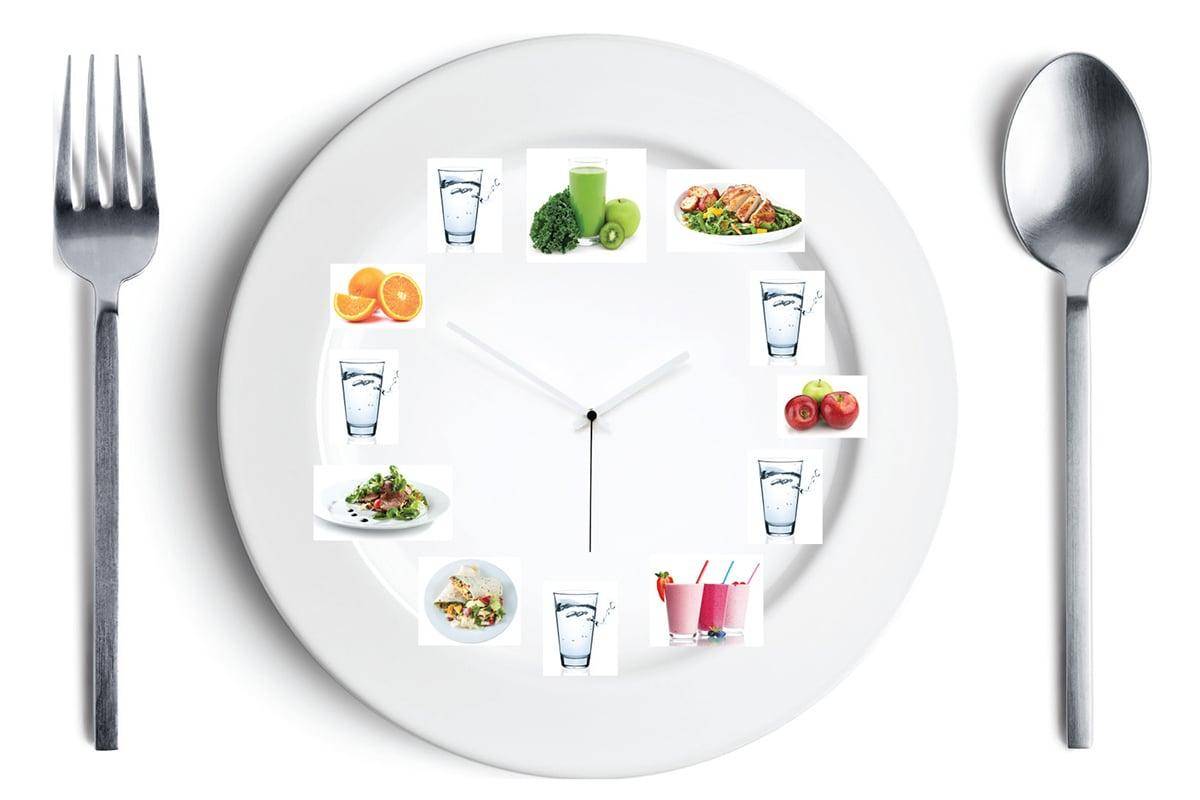
Meal Timing and Size: Strategies for Optimal Digestion
Meal timing and portion size play a crucial role in promoting optimal digestion. Consuming meals at consistent intervals helps regulate the body’s digestive processes. By establishing a routine, your body begins to anticipate food intake, allowing digestive enzymes to become more efficient. For optimal digestion, consider spreading your meals throughout the day rather than indulging in large quantities at once. This not only helps prevent discomfort but also aids your body in absorbing nutrients more effectively.
Snack Smart: Incorporating healthy snacks between meals can be a beneficial strategy. Choose options that are rich in fiber, healthy fats, and protein, as they promote satiety and assist with digestion. Here are some excellent snack ideas to consider:
- Nuts: Almonds and walnuts provide healthy fats.
- Fruits: Apples and pears are high in fiber.
- yogurt: Contains probiotics that support gut health.
Portion size also significantly impacts digestion. Eating smaller, more manageable portions allows the digestive system to work efficiently without being overwhelmed. Aiming for balanced meals can aid in this endeavor. A recommended approach is the “plate method,” where half your plate is filled with vegetables, a quarter with lean proteins, and the remaining quarter with whole grains. This balance not only aids digestion but also encourages a nutrient-dense diet.
Besides meal frequency and portioning, it’s essential to pay attention to the timing of your meals in relation to your daily activities. Eating a heavy meal right before exercise can lead to discomfort, while waiting too long between meals can result in low energy levels. Consider timing your meals strategically, emphasizing lighter options prior to physical activity and allowing adequate time for digestion before engaging in strenuous tasks.
Lastly, listen to your body. Each person’s digestive capabilities are unique, influenced by various factors such as metabolism, activity level, and individual health conditions. Keeping a food diary can help pinpoint which meal timings and portion sizes work best for you. Remember that maintaining a relaxed eating environment, chewing food thoroughly, and being mindful of portion sizes can significantly enhance your digestive experience.

Recipes for Digestive Health: Culinary Solutions to Promote Wellbeing
When considering foods that bolster digestive health,it’s essential to focus on those rich in fiber,which helps maintain regular bowel movements and promotes a healthy gut microbiome. Incorporate a variety of these foods into your meals to enhance your digestive prowess:
- Whole Grains: Foods like oats, quinoa, and brown rice are fantastic sources of soluble fiber.They not only help in slowing digestion,allowing for better nutrient absorption,but also support the growth of healthy gut bacteria.
- Fruits: Apples, berries, and bananas are excellent choices. Apples are especially high in pectin, a type of soluble fiber that can help manage digestive issues.
- Vegetables: leafy greens such as spinach and kale, along with broccoli and Brussels sprouts, provide essential vitamins, minerals, and fiber, helping to facilitate the digestive process.
In addition to fiber, incorporating fermented foods into your diet can markedly improve digestive health due to their rich supply of probiotics.These friendly bacteria can enhance gut flora and improve overall digestion:
- Yogurt: Look for live and active cultures to ensure you’re getting beneficial probiotics.
- Kefir: This fermented milk drink is loaded with probiotics and can be a delicious addition to smoothies or consumed on its own.
- Sauerkraut and Kimchi: These fermented vegetables provide not only probiotics but also a zesty flavor that can elevate many dishes.
For those struggling with digestive issues, easy-to-digest foods can make a significant difference. These foods are gentle on the stomach and can support recovery during times of digestive distress:
- Bananas: Soft and easy to digest, bananas can help replenish lost electrolytes.
- White Rice: A bland option that can help bind and solidify stool during bouts of diarrhea.
- Chicken and Fish: lean proteins that are less likely to irritate the stomach, making them ideal during digestive upset.
hydration plays a crucial role in digestive wellness. Drinking adequate water throughout the day can aid in the breakdown and absorption of nutrients,and assist in keeping the digestive tract functioning smoothly:
| Hydration Tips | Benefits |
|---|---|
| Drink water before meals | Can definitely help with the breakdown of food and prevent overeating. |
| Use herbal teas | Ginger and peppermint can soothe your digestive system. |
| Limit sugary drinks | Can definitely help avoid irritation in the gut and reduce bloating. |
Q&A
Q1: Why is digestion important for overall health?
A1: Digestion plays a crucial role in our overall health because it breaks down food into nutrients, which our bodies need to function optimally. A well-functioning digestive system ensures the absorption of vitamins, minerals, and energy from the food we consume.Moreover, a healthy digestive tract is linked to a robust immune system and can influence mood, weight management, and even skin health.
Q2: What foods are considered the best for improving digestion?
A2: A variety of foods can definitely help enhance digestion. Some of the top contenders include:
- Fiber-rich fruits and vegetables: Such as apples, pears, broccoli, and carrots, which support regular bowel movements.
- Whole grains: Oats, quinoa, and brown rice are great for their insoluble fiber content, aiding in digestion.
- fermented foods: Yogurt, kefir, sauerkraut, and kimchi are rich in probiotics that can enhance gut health.
- Nuts and seeds: Almonds and chia seeds provide healthy fats and fiber.
- Ginger and peppermint: These herbs can soothe the gastrointestinal tract and may help alleviate digestive issues.
Q3: How does fiber contribute to better digestion?
A3: Fiber is a superstar when it comes to digestion.It adds bulk to our stool,making it easier to pass through the intestines,which can help prevent constipation.Additionally, fiber feeds the healthy bacteria in our gut, promoting a balanced microbiome and supporting overall digestive health.
Q4: can I improve digestion by changing my eating habits?
A4: Absolutely! Eating habits can significantly influence digestion. Here are a few tips:
- Chew your food thoroughly: This breaks down food into smaller pieces,making it easier for your digestive system to process.
- eat smaller, more frequent meals: This can prevent overloading the digestive system at once.
- Stay hydrated: Drinking plenty of water aids in breaking down food and helps prevent constipation.
- Limit processed foods: These often contain additives that can disrupt the digestive process.
- Mindful eating: Eating slowly and without distractions can enhance your body’s ability to properly digest food.
Q5: Are there any particular drinks that can aid digestion?
A5: Yes! Here are some beverages known for their digestive benefits:
- Warm water with lemon: This can stimulate the digestive system and improve liver function.
- Herbal teas: Chamomile, ginger, and peppermint teas can soothe the stomach and help with bloating.
- Bone broth: Rich in nutrients and easy to digest, it can support gut health.
- Kefir and yogurt drinks: Packed with probiotics, they can help balance gut flora and improve digestion.
Q6: Are there any foods I should avoid to maintain a healthy digestive system?
A6: To maintain a healthy digestive system, it might be wise to limit:
- Greasy or fried foods: They can slow digestion and lead to discomfort.
- Highly processed foods: These often contain preservatives and artificial ingredients that can irritate the gut.
- Dairy products (if lactose intolerant): These can cause bloating and discomfort.
- Excessive sugar: Sugary foods can disrupt the balance of gut bacteria.
Q7: Can lifestyle factors influence digestion beyond diet?
A7: Definitely! Lifestyle factors like stress, sleep, and physical activity significantly impact digestion. High stress levels can lead to digestive issues such as IBS (Irritable Bowel Syndrome) while adequate sleep supports gut health. regular physical activity helps stimulate intestinal motility, ensuring food moves smoothly through the digestive tract. A balanced lifestyle, along with a conscientious diet, can greatly enhance digestive function.
To Conclude
nurturing our digestive system is a journey that begins on our plate. By incorporating these digestion-friendly foods into your diet—whether it’s the fiber-rich essence of whole grains, the probiotic powerhouses found in yogurt, or the soothing properties of ginger and peppermint—you can pave the way for better gut health and overall wellness. Remember, digestion is not just about breaking down food; it’s a complex interplay of harmony within our bodies. So, take a moment to consider what you’re fueling your body with, and make conscious choices that support your digestive health. Here’s to embracing a balanced diet that not only satisfies your hunger but also fosters a vibrant and resilient digestive system.Happy eating!
